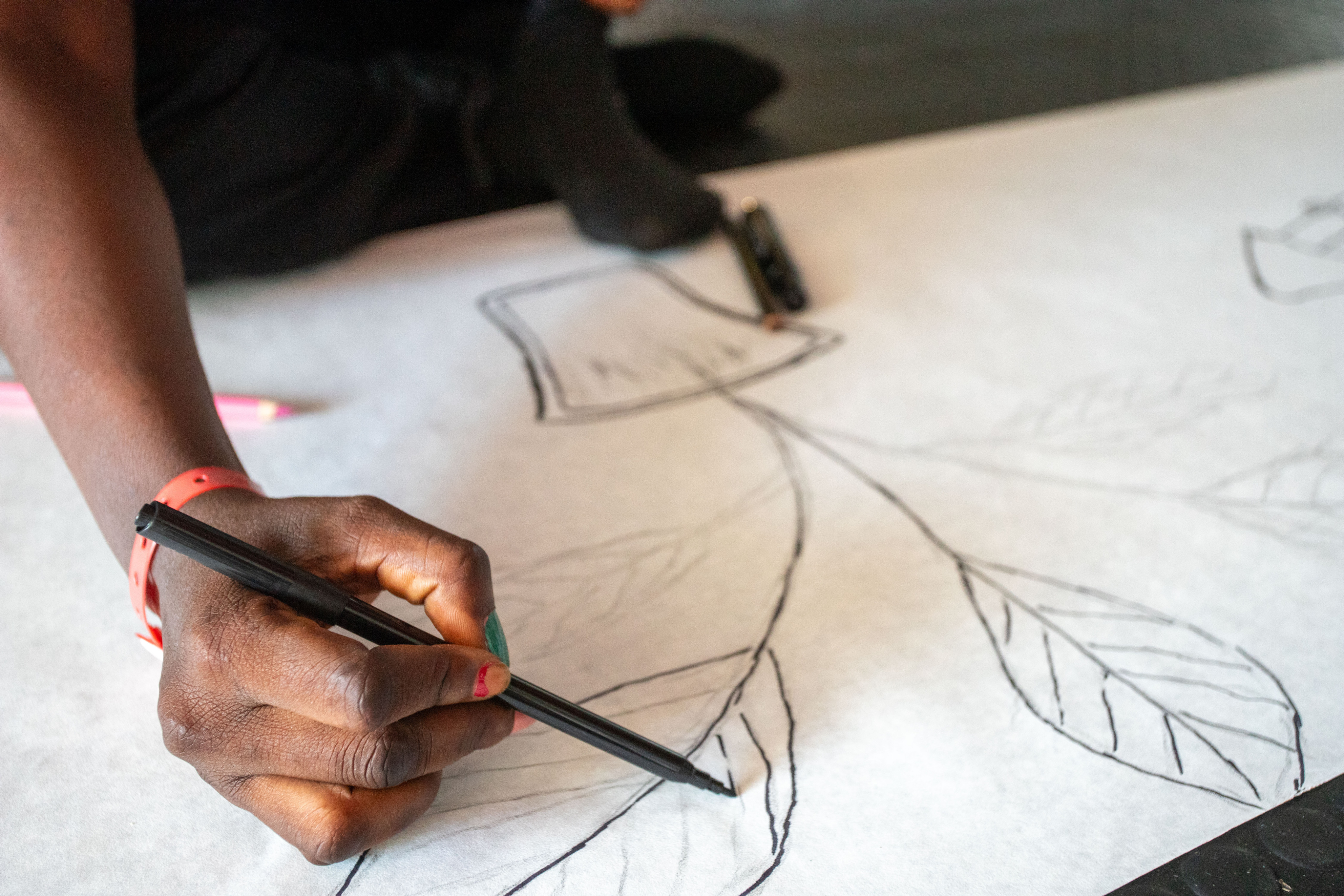The missing boy
16 years old, Gambia
16 years old, Gambia
12 September 2023
Monday 7th August 2023. MSF team on the Geo Barents rescued 49 people, mostly teenagers, girls and boys, drifting on an iron boat in the Central Mediterranean. There were 50 when they started their perilous journey at sea, fleeing from the Tunisian coasts. As of today, one of them remains missing. Abe. This is his story.
Before reaching the boat departing point in Sfax, the survivors – most of them coming from Gambia, a small west-African state, had already had to endure a long journey, about over 6,000 kilometers long crossing the Sahara Desert and multiple countries. “When we arrived in Sfax [Tunisia], a man told us he has a boat that can take up to 35 people. But as soon as we boarded, we realized that there were 50 of us in the boat. It was really overcrowded. From the beginning, water started leaking slowly into the boat," says Hussain, one of the survivors.
The group departed from Sfax around midnight, starting their journey across the Mediterranean in an unseaworthy boat, with limited supplies of food, water, and fuel. With no map and no navigation experience, only an Android phone compass - that stopped working almost immediately - to help them reach their desired destination: Italy.
On the second evening of their journey, the weather started worsening. “The waves were like mountains. We thought the boat was going to break into two”, remembers Hussain. That’s when the boat’s engine stopped working and they started drifting somewhere between Malta and Tunisia.
-2.jpg)
Adrift in high seas
During the day, the iron boat was so hot that all the passengers were getting burns and bruises caused by the hot metal. At nighttime, it was cold and scary. They were thirsty, hungry, hopeless. Some of them were drinking salty water; and eventually they all started to feel the pain in their muscles, mouth and throat due to dehydration.
After drifting for almost five days, they spotted a distant bright light - an oil platform, as it turned out to be - and decided to try to navigate the boat towards it, by using their shoes as oars. These efforts were in vain. The boat was too heavy, and the currents too strong. They were too far away.
Drifting continued.
All of a sudden, in the afternoon of the sixth day, they saw a small container passing by the boat. It was full of liquid, and everyone believed it was either water or fuel. Two people decided to jump overboard and try to grab the container. They used inner tubes [from car tires] as floating devices. But they quickly realized that the current was too strong, pushing them away. Abe and two other people decided to jump overboard too in an attempt to save their comrades. Abe was in the water, holding those who jumped first, while the two others - who initially joined him in this rescue attempt - managed to climb back to the boat.
People onboard took off their clothes, ripped and tied them to form ropes in order to reach Abe and the two others that remain in high seas.
Without success – the ‘rope’ was too short.

Desperate search
"The sea was very powerful, and the three of them went away [down the stream]. I am sad. Very very sad. This journey is not easy. Seriously, it’s not easy,” says Mohamed, one of Abe’s friends who was with him on the boat.
A couple of hours later, the remaining people on the boat spotted a grey dot in the sky, which turned out to be the Sea Bird 2, an airplane operated by the Sea-Watch NGO: "As we were shouting and waving to the airplane, it was going down and down, confirming that they spotted us. But then the airplane disappeared, and we lost hope again. Fortunately, it came again soon, going round and round around us. We heard and saw two speedboats approaching. We couldn't stop our emotions”, remembers Hussain. “I was thinking about my wife, and my two children and I started crying like a baby, out of joy and happiness.". The speedboats were Geo Barents’s ones which navigated towards the boat in distress, alerted by the airplane.
.jpg)
After several hours of complex search operation, with limited visibility and unfavorable weather conditions, MSF Geo Barents team managed to find two out of the three missing persons from the iron boat. But Abe kept missing. "The decision to stop the search operation was one of the toughest we had to take," says Virginia Mielgo, project coordinator on board Geo Barents on that day. “Such decisions have an emotional price and consequences for everyone.”
Abe gave his life trying to save others. His tragic death is yet another example of the deadly consequences of European migration policies, aiming at defending borders rather than protecting people. So far in 2023, at least 2,078 people died or went missing in the Central Mediterranean.
--
Some names in the text were changed to protect people’s identities.
.jpg)